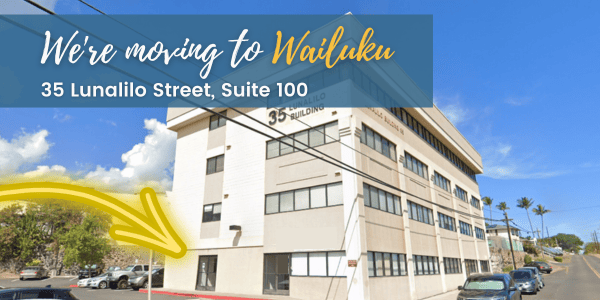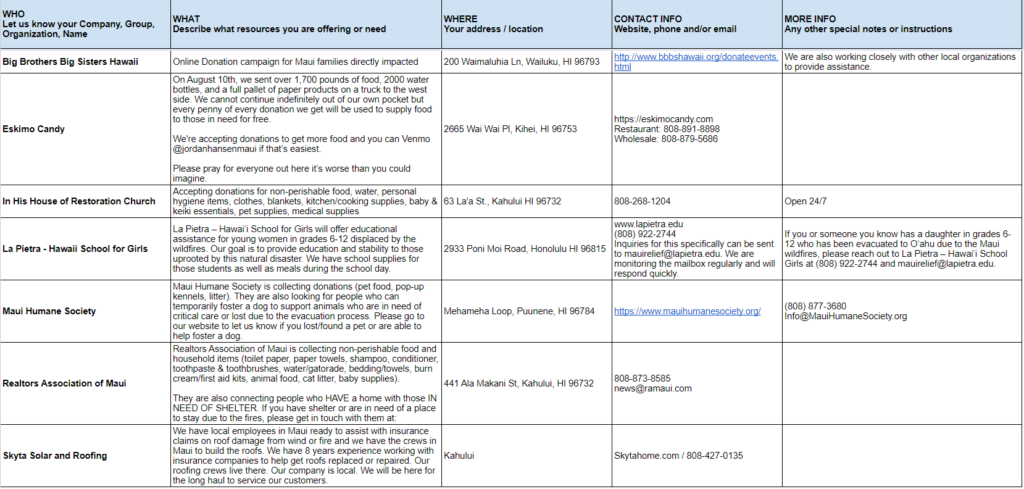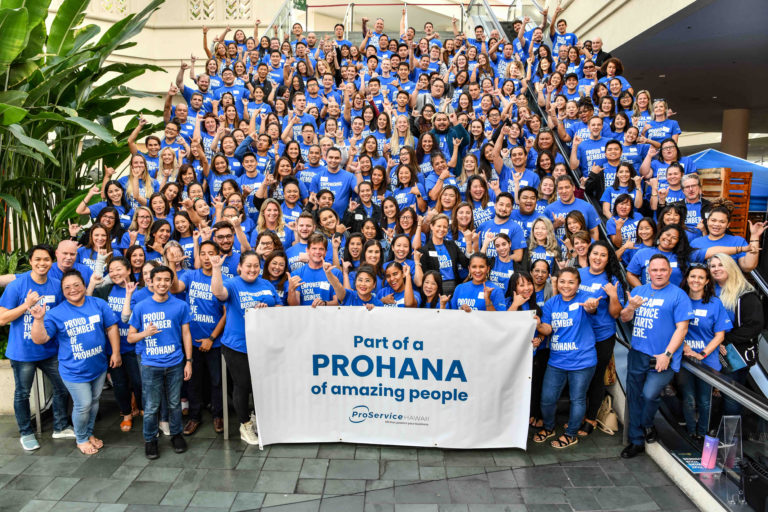We encourage affected businesses to let employees know they can begin filing for unemployment benefits with the State of Hawaii. The best way to file a claim is online (https://labor.hawaii.gov/ui/).
However, if internet access is an issue, claims can also be filed by phone. As of August 12th, the State has extended hours, seven days a week, from 7 am to 6 pm. Employees can call any of the four numbers listed here: (833) 901-2272, (808) 762-5751, (833) 901-2275, or (808) 762-5752.
If neither of these are options, claims can be filed in-person at a State unemployment office. Employees can visit the Maui Unemployment Insurance Office, which is located in Wailuku at the State Building at 54 South High Street, Room 201. They are accepting walk-ins, but we are advised that wait times may be lengthy. To file a claim in person, identification, such as a driver’s license, passport, or State ID card, is required. Photocopies will be accepted.
Overview:
Unemployment Insurance (UI) is a joint program of the federal and State governments. In Hawaii, it provides temporary cash benefits to workers who become fully unemployed or separated from their employer (e.g., layoffs) or partially/temporarily unemployed but attached to their employer (e.g., reduced hours, zero-hours furlough, etc.) through no fault of their own, and who meet the eligibility requirements as determined by the State.
Benefit Amount & Duration:
The State will calculate employees’ weekly benefit amount based on their wages. Full unemployment, usually the outcome of a layoff, pays up to a maximum of $763 per week, and employees can receive benefits for up to 26 weeks in the one year called a “benefit year.” Partial unemployment, usually the outcome of a furlough or working reduced or even zero hours, also pays a maximum of $763 per week. However, suppose an employee's earnings during the week equal or exceed their weekly unemployment benefit amount. In that case, they will not be entitled to unemployment benefits for that week.
Employee Eligibility for Benefits:
The State of Hawaii, Unemployment Insurance Division, will determine employees’ eligibility based on the following criteria:
- Prior wages: An employee must have earned sufficient wages in the 12 to 18 months prior to filing a claim.
- Separation reason: If unemployment is due to the Maui wildfires, an individual will qualify for UI benefits. Generally speaking, if a person becomes unemployed through no fault of their own, they are eligible for benefits.
- Ability and availability to work: The job search requirement to maintain eligibility is currently being waived by the State for employees impacted by the wildfires.
How Employees Can Apply:
Employees can file for unemployment benefits in the following ways:
- By phone: If internet access is a challenge, employees can call any of the four numbers listed here: (833) 901-2272, (808) 762-5751, (833) 901-2275 or (808) 762-5752. As of August 12th, the State has extended hours, seven days a week, from 7 am to 6 pm.
- In-person: If filing online or by phone is not an option, employees can visit the Maui Unemployment Insurance Office (Wailuku at the State Building at 54 South High Street, Room 201). Walk-ins are accepted, but wait times will likely be high. To file a claim in person, identification such as a driver’s license, passport, or State ID card, is required. Photocopies will be accepted.
To apply, employees will need:
- Correct employer name
- Required Identification
- If applying online or over the phone – Social Security Number is required
- If applying in-person – A driver’s license, passport, or State ID is required (photocopies accepted)
- Contact info
- Valid email
- Dates of employment over the past 18 months
- Past employer’s names, addresses, and phone numbers
- Reason for separation
- Direct deposit info (account type, account, and routing number). In the state of Hawaii, having a direct deposit account is required to get paid
Notes about applying:
- Employers should not try to file on behalf of an employee. To process the claim, the State would still need to contact the employee to validate the information submitted, causing significant delays in the employee receiving benefits.
- If an employee has filed for unemployment benefits previously and their benefit year is still active, they will be directed to reactivate their current claim rather than filing a new initial claim.
- If an employee is furloughed but not working any hours, they can report “Temporary layoff – Partial claim” as the “Type of Separation” when they file a claim.
- Employees working reduced hours can report “Still attached” as the “Type of Separation” when they file a claim.
After Applying:
- Employees will receive benefits through direct deposit. At the time employees apply for benefits, they will be directed to provide their banking information.
- Unemployment benefits are taxable, but taxes are not automatically withheld. Employees may request withholding in their application for benefits.
- Employees do NOT need to register with HireNet and complete the job search requirement if employees are filing claims due to the wildfires. The state is waiving this requirement only for employees affected by the wildfires. However, the state instructs employees to answer the questions as follows (since answering “no” will hold up their claim)
- Did you post an online resume on HireNet Hawaii? YES
- Did you look for work? YES
- How many employers did you contact? 3+
- Are you keeping written records of your job contacts? YES
How Unemployment is Funded:
For most employers, unemployment benefits are paid from funds held by the State that have been collected from the employer via unemployment insurance tax. For self-financed employers (limited to non-profits who have applied to be self-financed), benefits are paid by the employer through reimbursement to the State.
Benefits paid due to the wildfires will not be charged to contributory employers.
Resources:





